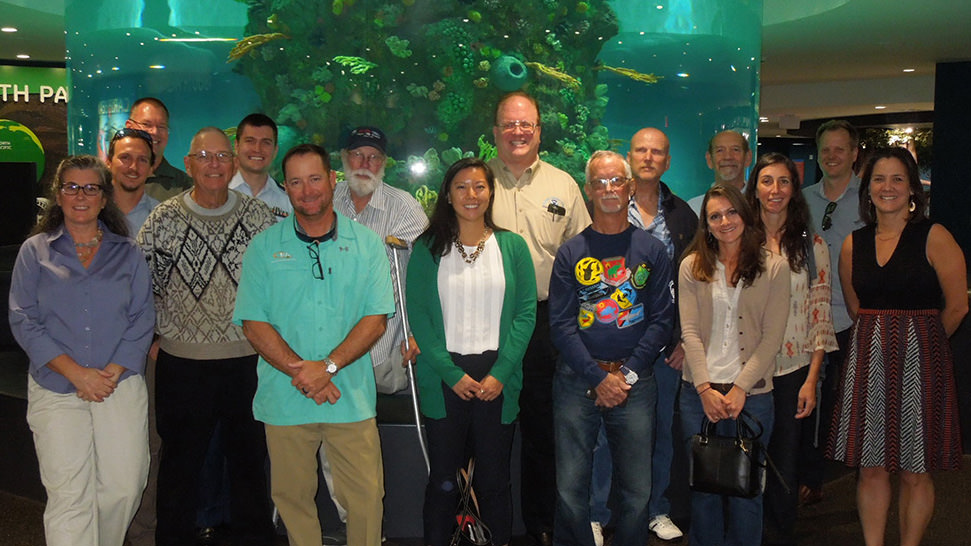
Dr. Adrienne Correa
Houston, TX
Dr. Adrienne Correa is passionate about protecting Flower Garden Banks National Marine Sanctuary resources and making sure that people learn about this special place in the Gulf. She has been an asset to the sanctuary since she first connected with the staff in 2015, actively engaging with education, outreach, research, diving, and policy activities for many years.
Dr. Correa served as a Flower Garden Banks National Marine Sanctuary Advisory Council member from 2015 to 2022, representing research interests and objectives for her stakeholders. In this capacity, she participated in numerous discussions and proposals leading up to sanctuary expansion in 2021, as well as other sanctuary management issues. She has also been a volunteer diver since 2016, participating in various research, monitoring and resource protection activities alongside sanctuary staff in the field.

Over the years, Dr. Correa has also shared her scientific expertise and knowledge of coral diseases with sanctuary staff. She provided emergency response expertise and support for a coral mortality event in 2016, and again for a coral disease outbreak in 2022. When it was determined that the 2022 outbreak might be the dreaded stony coral tissue loss disease (SCTLD), Adrienne immediately applied for a rapid response grant through the National Science Foundation, facilitated critical connections with other researchers across the region, and assisted the sanctuary in trying to understand the disease in order to take protective action. She continues to pursue research to understand the histopathology of the disease (examination of diseased cells and tissues), the genomic response, and the long-term effects on affected corals.
In addition to scientific expertise, Dr. Correa has also contributed extensively to outreach efforts about the sanctuary. In 2015, she printed giant canvas images of the reef for teaching research techniques, practicing coral identification, and getting people interested in the sanctuary and coral reefs. She has used these canvases at a number of venues over the years. Together, these efforts aid in building sanctuary awareness and engagement, a sometimes difficult task due to the remote location of the sanctuary.


